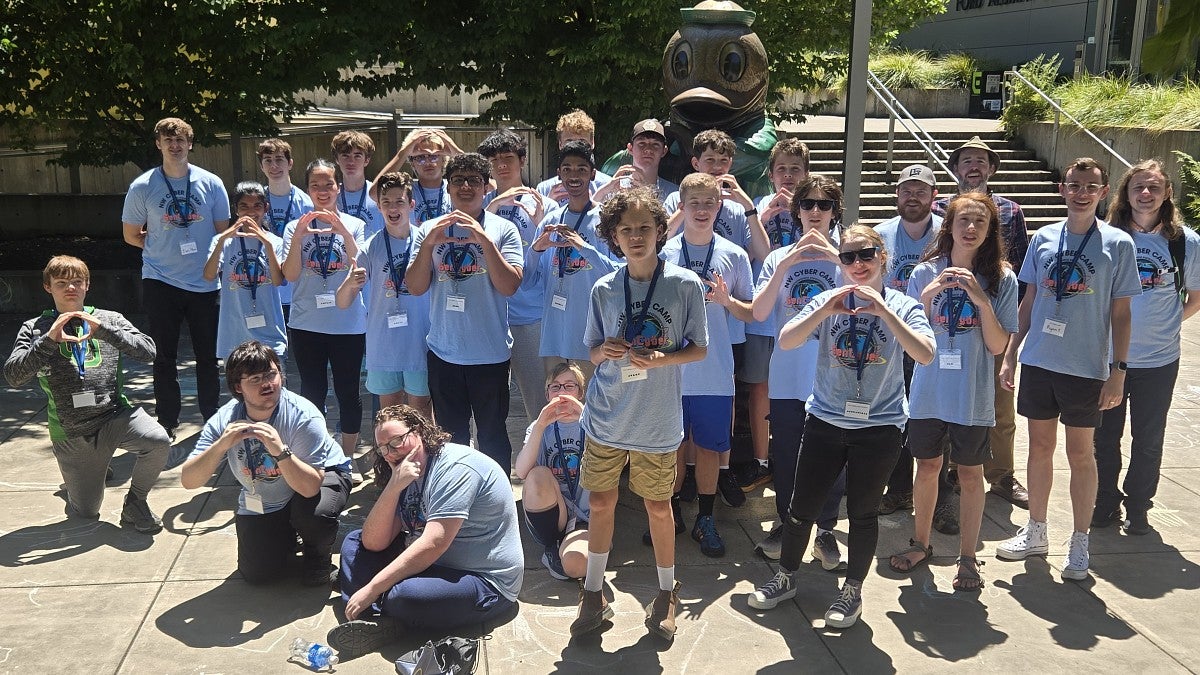
Oct. 28, 2025 - 1:00pm
Imagine arriving for your first day of an internship in cybersecurity with a large company, and just as you’re setting your laptop bag down at your desk, a flurry of activity erupts around the office. Your arrival happens to coincide with a significant security incident, and first day or not, it’s your job to start figuring out what happened, why it happened and how to prevent it in the future.
This is the scenario that nearly 40 high schoolers found themselves in at the third annual GenCyber Summer Camp through the School of Computer and Data Science. This week-long camp gave students the opportunity to work with the University of Oregon faculty, learn about what it’s like to work in cybersecurity, and start applying best practices around networks, browser activity and more.
“This is a tremendous opportunity for high school students to learn what cybersecurity is all about,” said Dennis Miller, lead instructor and UO professor.
Thanks to an National Security Agency grant, it’s a completely free program. “All they have to do is show up,” said Miller.
Aimed at giving students from all backgrounds a glimpse into the world of computer science and cybersecurity, the camp introduced students to critical concepts and insight on the industry. They participated in collaborative activities and met guest speakers from organizations like the FBI and Hewlett-Packard. They also attended sessions covering topics like how to apply to college for computer science and what it’s like to be a cybersecurity professional.
The camp at the UO is one of several affiliated summer camps across the state that were organized by GenCyber program.
“It’s exciting to have the chance to connect the UO cybersecurity program with the larger cybersecurity community in Oregon, including students, government and industry partners,” said Reza Rejaie, professor and head of the Department of Computer Science.
The camp also provided graduate students in the UO cybersecurity program an opportunity to mentor and inspire younger students.
“Gaining teaching experience is important for graduate level students, so we’re especially pleased to offer this experiential learning opportunity to UO cybersecurity students,” said Rejaie.
Whether camp attendees decide to pursue a career in cybersecurity or not, they benefit from the knowledge and enthusiasm they generated over their week at the camp.
“My favorite part of it all is seeing the students’ eyes light up as they realize this is a cool thing to learn about and get involved in,” said Miller. “When we quiz them about what they learned at the end of the day and can see a fire lighting in them to pursue their ideas further, that’s when we know this camp is making an impact.”
—By Evan Ney, College of Arts and Sciences, School of Computer and Data Science
